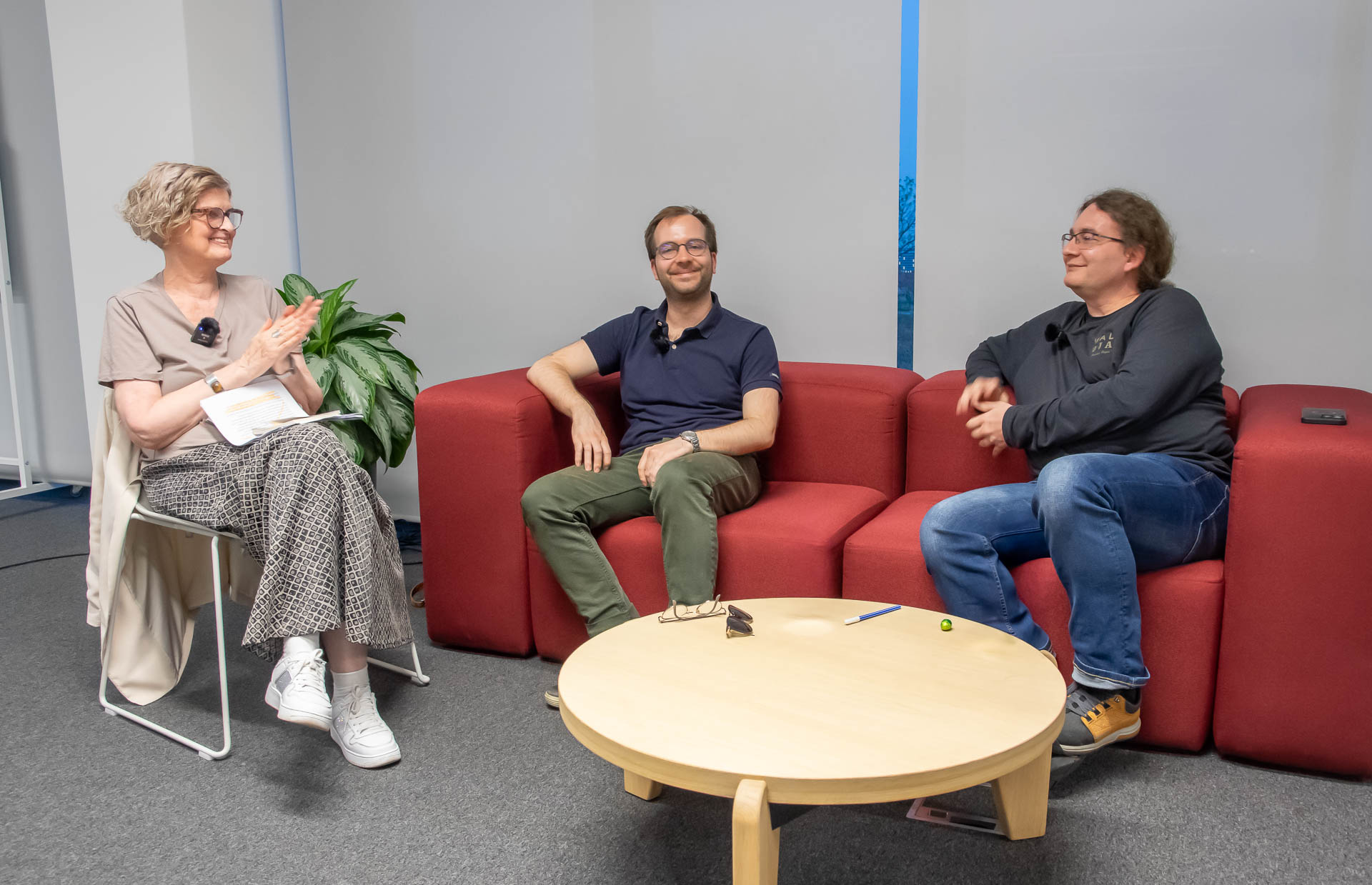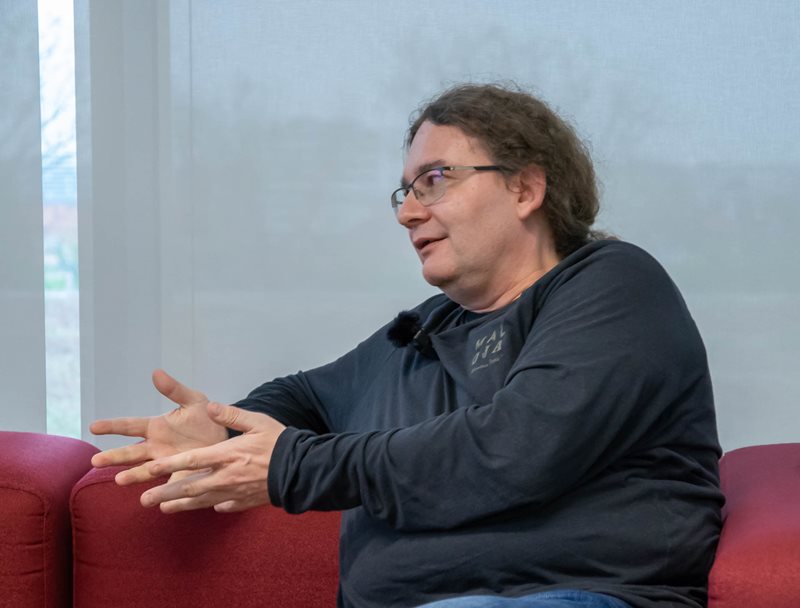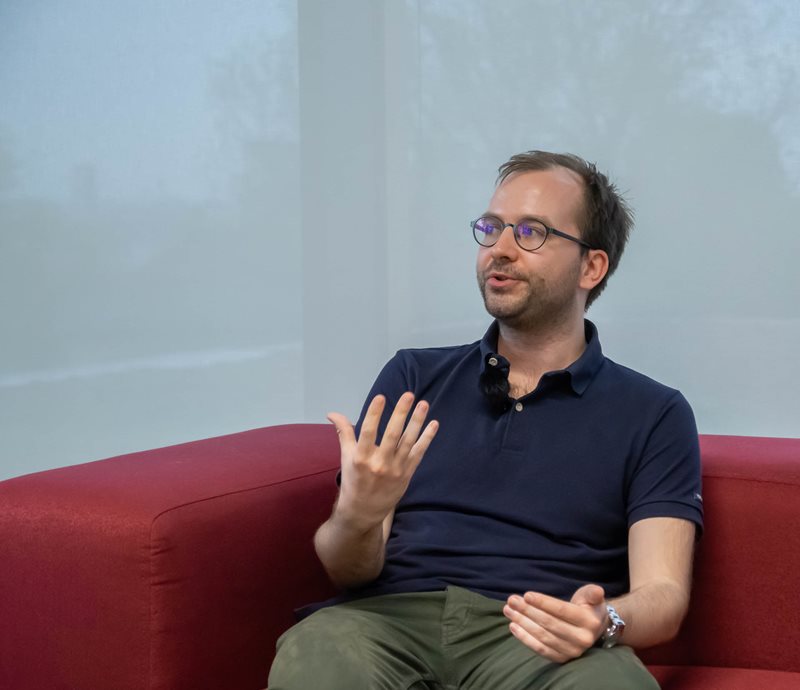Infocracy: Intellectual Panic or Real Threat? – Reprogramming Our Minds

The event invitation already posed bold questions: can big data, data-driven thinking, and digital rationality replace public debate? Júlia Sipos, cultural coordinator at the Corvinus University Library, noted that six of Han’s books have been published in Hungarian (with Infocracy appearing in 2024), and his works are also available in French, English, and Spanish. Though born in South Korea, Han has long lived in Berlin and writes in German—often in a provocative style. In Infocracy, he argues that the signs of democracy’s decline are increasingly visible around the world due to digitalization. According to Han, whereas industrial capitalism used to subjugate the body, we now live in an “infocracy,” where the overload of information dulls critical thought and penetrates deeply into individuals’ minds under the illusion of freedom—making them unaware of the manipulation they face.
“Perhaps the author doesn’t get it right on every count,” remarked Júlia Sipos at the April 17 event organized by the Corvinus University Library. To dig deeper, she invited two experts known for their broad, interdisciplinary thinking: László Kovács, Assistant Professor at Corvinus’ Department of Statistics, and Árpád Rab, digital culture expert and futurist at the University of Public Service’s Institute for Information Society.

“Infocracy is a good book, and much of it rings true—but perhaps not exactly in the way Han frames it,” said Rab. “What he describes is more typical of highly developed countries. It’s true that digital culture impacts our lives, but whether it’s dismantling democracy? That’s debatable.” Rab pointed out that today’s increasingly complex world makes people crave more knowledge and visibility, and digital tools make this possible—such as the novelty of being able to connect with complete strangers. Whether this is beneficial remains to be seen, but Rab believes the world would be better off if decisions were truly based on data. To him, Han’s work reflects a degree of intellectual panic.

László Kovács responded by highlighting the limitations of optimization models, such as large language models. “These models work based on a simplified objective function—but what is that function really?” he asked. “Take a macroeconomic question: What defines a successful economy? Is it a high GDP or reduced inequality between social groups? That’s not something an algorithm can decide.” He emphasized the importance of framing input questions in ways algorithms can meaningfully interpret.
Rab agreed and stressed that understanding interdisciplinary logic is key. He also pointed out the distinction between “hard” and “soft” data—using the example of four unemployed individuals with very different circumstances, which soft data fails to reveal. “You could describe a medieval person with a hundred variables. Today’s person? A thousand, maybe more. And yet AI focuses mainly on hard data.”
Politicians Have Moved into Our Phones
The discussion then turned to the rapid spread of fake news in today’s world. According to László Kovács, “a good fake news story is one that can’t be verified quickly.” He referenced the Kádár era as an example: Hungary’s wave of indebtedness began in the late 1970s, but the consequences only became evident in the 1980s—showing how the impact of a bad decision can take a decade or more to surface. Digitalization, he added, attempts to minimize this lag.

Prompted by a question from Júlia Sipos, the panel explored whether digitalization is truly harmful to democracy. Futurist Árpád Rab emphasized that we shouldn’t blame digital technology itself for every consequence we observe. He argued that the real shift brought about by digital culture is a decline in action. However, he acknowledged that politicians now possess a powerful new toolkit—and as he put it, “politicians have moved into our phones.”
Rab stressed the need to guide people back into real communities and shared causes—to pull them away from constant screen-scrolling. He agreed that fake news and conspiracy theories are dangerous, but clarified: “Dictatorships aren’t dictatorships because they use digital systems—they simply exploit the technology for their own ends.” He even attempted to create a fake-news-filtering algorithm in the past, but admitted, “It’s no easy task.” Still, he believes people shouldn’t discard their phones—they should learn to use them wisely.
Júlia Sipos also mentioned that Han refers to a “digital prison” in his book. Kovács responded by saying he often shows students how Facebook classifies users through algorithmic profiling. “Algorithms optimize something,” he explained, “but they can only do this based on the available data. We must learn to use screens consciously and wisely—and education plays a huge role in that.”
Rab added, “We gave these devices to our children. To illustrate the risks, I sometimes say: instead of a piece of bread soaked in palinka (alcohol), we now give them smartphones.” He also noted that it’s mostly people aged 35–40 who use their phones the most, and only 14% of parents install online safety filters on their children’s devices—a rather low figure. “We need to raise media awareness among kids—we need to reprogram minds,” he concluded.
At the end of the session, the speakers answered questions from the audience. A podcast episode of the discussion is also planned, as many students expressed interest in the topic but couldn’t attend due to scheduling conflicts.
Katalin Török
Photos: György Kenéz